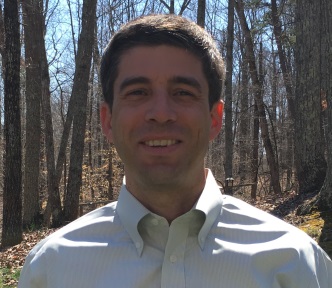This website uses cookies so that we can provide you with the best user experience possible. Cookie information is stored in your browser and performs functions such as recognising you when you return to our website and helping our team to understand which sections of the website you find most interesting and useful.
April 15, 2016
Sustainably Healthy Workplaces

On March 25, 2016, Sustainability Roundtable Inc. (SR Inc) hosted a Q1 2016 symposium at SR Inc’s headquarters in Cambridge, MA. Corporate Real Estate (CRE) and Sustainability Executives from across industries joined SR Inc to initiate our mutual examination of one of the Sustainable Business & Enterprise Roundtable’s (SBER) core research topics for 2016 – Sustainably Healthy Workplaces in CRE – which leading Member Executives note are playing an increasingly integral role in their dedicated move to Regenerative Portfolios by 2030. In particular, SR Inc looks forward to leveraging the work of long-time Member-Client National Institutes of Health (NIH) and the Health in Buildings Roundtable (HiBR) SR Inc supports, which has worked to organize and develop original research on how best to manage the human health impacts of the built environment.

Among the Member-clients SR Inc was working most closely with in the the first quarter to develop a portfolio-wide approach to Sustainably Healthy Workplaces was Anthem health care. Hakon Mattson, Anthem’s Director of Energy & Sustainability, is leading his own company’s efforts to develop and integrate a Sustainably Healthy Workplace strategy into the existing strategy for CRE.
As a health insurance company, Anthem emphasizes the important link between environmental and human health for its associates and aims to become a leader in the emerging field that links buildings’ environmental sustainability features to their occupants’ health. As Anthem builds the business case for investing in a Sustainably Healthy Workplace Strategy portfolio-wide, Mattson cites multiple studies, including a 2009 CDC study that found every $1 spent on wellness initiatives results in $2.43 in savings[1] and another that found that direct building-related health costs total $745 annually[2]. Anthem’s payroll costs are 10 to 12 times higher than real estate costs, thus while a 5% savings in energy costs amounts to millions of dollars, a 5% savings in payroll (e.g. through increased productivity or reduced absenteeism, turnover) results in hundreds of millions of dollars in savings for the company.
Mattson and his team are currently working with HR, Wellness, and other internal functions to gather and evaluate financial/organizational outcome metrics (e.g., payroll, retention, workman’s compensation, etc.). At the same time, they are developing a Sustainably Healthy Buildings Scorecard – adapted from the WELL Building Standard – to assess the physical conditions within offices (e.g., daylighting, IAQ, available amenities, etc.), so that they may ultimately rank all Anthem sites based on outcome metrics, workers’ perceptions, and the Scorecard. Once the portfolio has been benchmarked, Mattson will be able to lead in developing and implementing multi-year plans to remediate outlier situations/sites.
Hakon and his team have already begun to identify initiatives that could be included in remediation plans, including several no/low cost options (e.g., adding indoor plant contracts for areas that do not have views of nature, changing landscaping/pest management contracts to meet LEED standards, modifying the mix of healthy options available in vending machines, etc.). By integrating a Sustainably Healthy Workplace strategy into Anthem’s existing strategy for CRE, Mattson’s team is well-positioned to leverage existing goals, initiatives, and partnerships to drive forward a strategy that can reduce the environmental impact of Anthem’s portfolio, improve the health of its employees, and ultimately produce significant cost savings for the company.

SR Inc has been impressed by the cross-industry commitment Member-Clients have exhibited to investigating their shared questions regarding more sustainably healthy workplaces and is energized to continue this research with Member-Clients throughout 2016. Enabled by this work, we look forward to providing at our Summit for Sustainable Operations V on December 8th a definitive, stepwise process for Portfolio Managers and Directors of Real Estate to implement Sustainably Healthy Workplace strategies and ultimately supporting Member-Clients in the implementation of these strategies through direct assistance and primary resources.
[1] http://www.cdc.gov/pcd/issues/2009/apr/08_0206.htm
[2] http://www.aia.org/aiaucmp/groups/ek_public/documents/pdf/aiap080050.pdf
Select Relevant SBER Executive Guidance & Tools:
SBER Presentations:
- 2016 Q1 Symposium Presentation & Discussion Summary: The Sustainably Healthy Workplace Revolution
- Sustainability Communication Strategy for Employee Engagement
SBER Member Briefings:
- Emerging Technology Tools for Occupant Engagement
- Managing Indoor Air Quality
- Occupant Engagement for Sustainability
- Sustainable Food Service Strategies and Standards
- Sustainability in Leased Space
SBER Full Reports (with complimentary Executive Summaries and PPT Presentations):
- Benchmarking Real Estate Portfolio Sustainability
- Integrated Alternative Workplace Strategies (AWS)
- Sustainable Operations Strategy
As Senior Sustainability Analyst for SR Inc, Kelsey supports research, development and implementation of corporate sustainability strategies for companies that recognize the necessity of more sustainable operations and real estate in the face of climate change and an increasingly resource-constrained world.
 Prior to joining Sustainability Roundtable, Inc. Kelsey worked at The Cadmus Group, Inc., – a Boston-area based consulting firm – where she supported clients including the U.S. Environmental Protection Agency and the U.S. Green Buildings Council to promote sustainable buildings, clean energy, and safe drinking water. Kelsey also devoted a year to national service with the AmeriCorps National Civilian Community Corps, where she worked on team-based conservation and community development projects throughout the Southwest United States. Kelsey has her B.A. in Environmental Studies from Connecticut College.
Prior to joining Sustainability Roundtable, Inc. Kelsey worked at The Cadmus Group, Inc., – a Boston-area based consulting firm – where she supported clients including the U.S. Environmental Protection Agency and the U.S. Green Buildings Council to promote sustainable buildings, clean energy, and safe drinking water. Kelsey also devoted a year to national service with the AmeriCorps National Civilian Community Corps, where she worked on team-based conservation and community development projects throughout the Southwest United States. Kelsey has her B.A. in Environmental Studies from Connecticut College.

